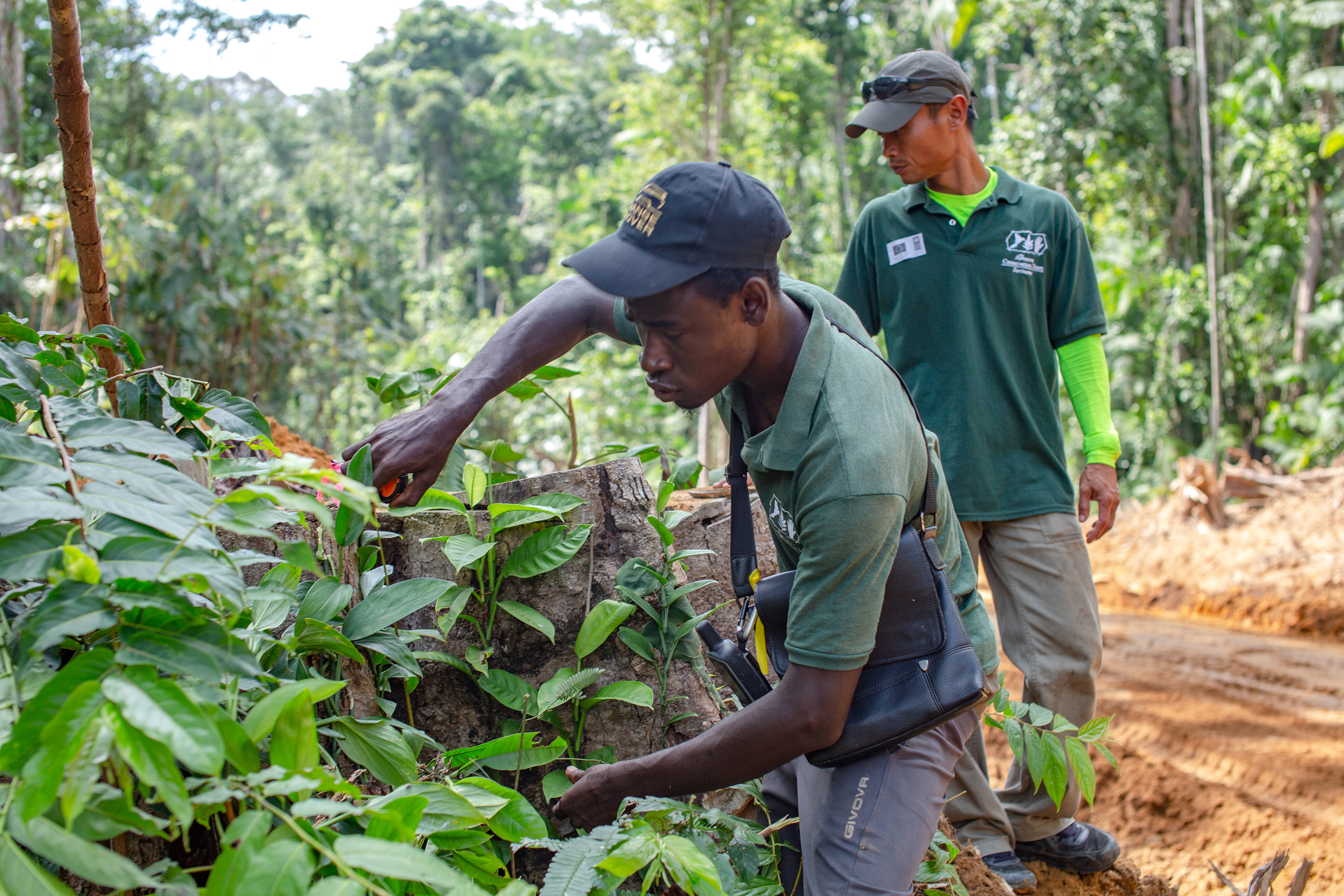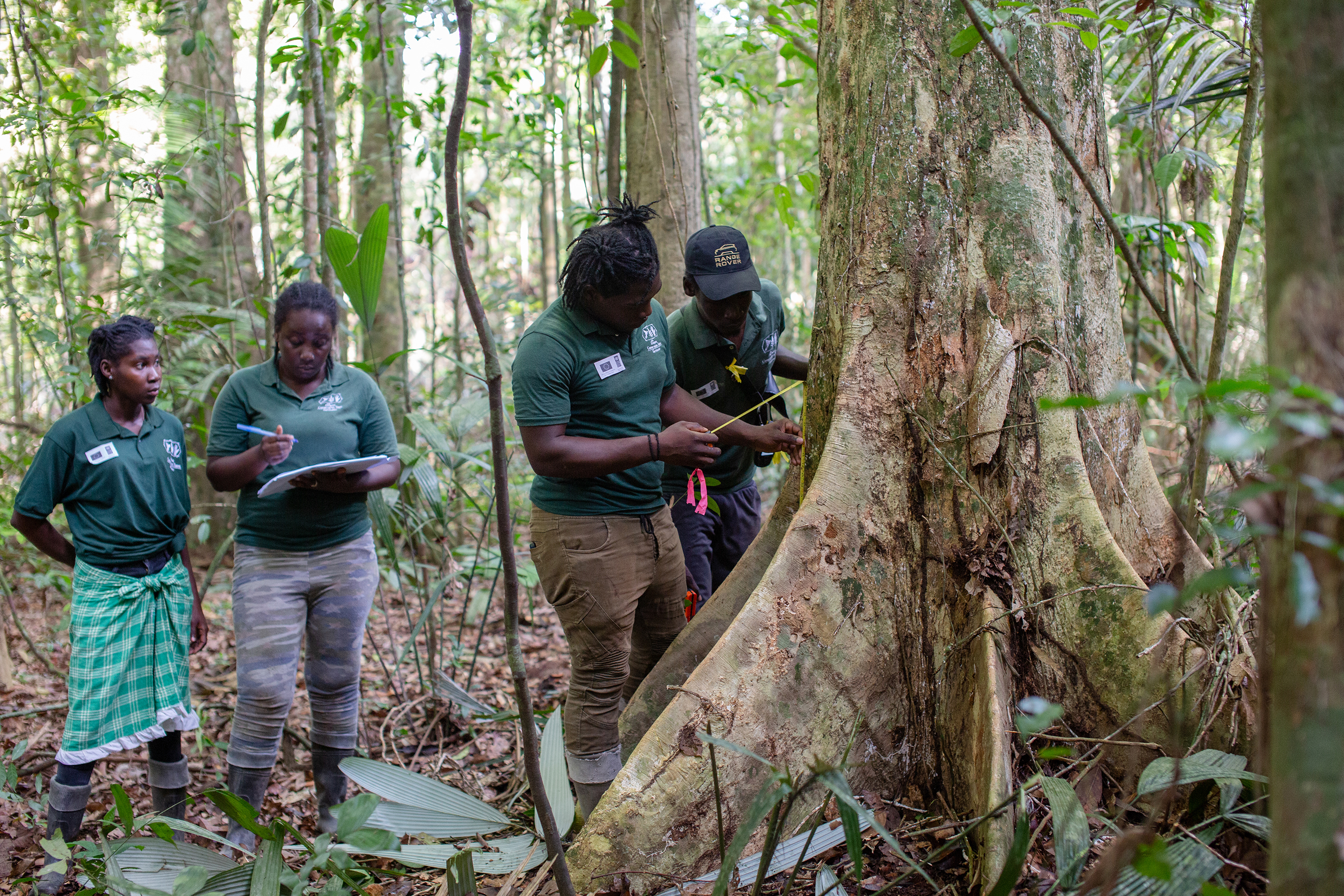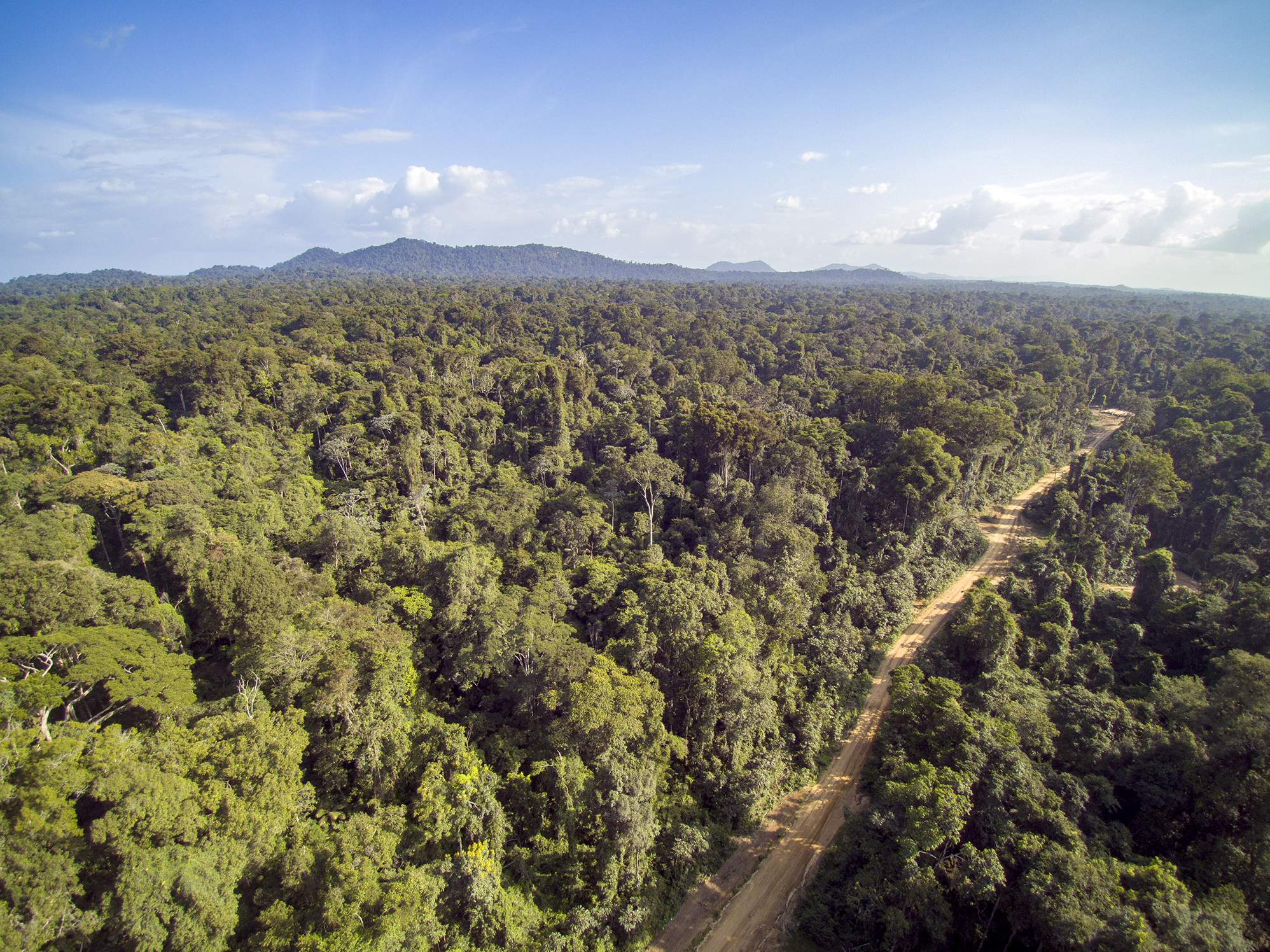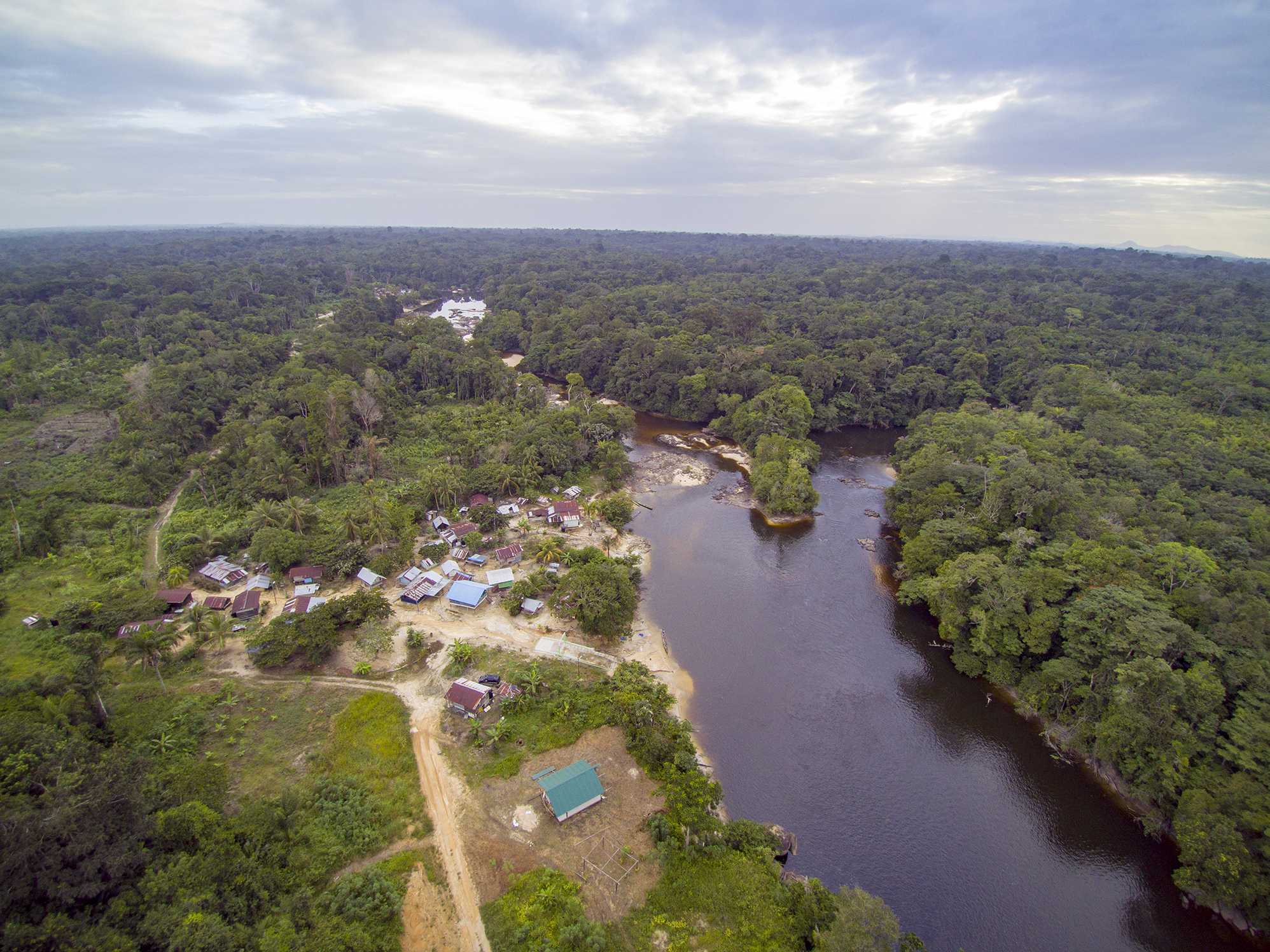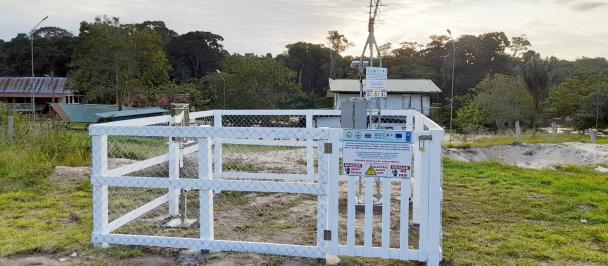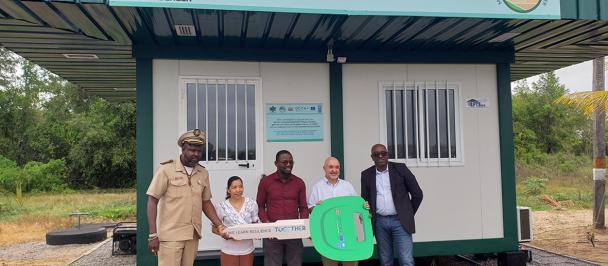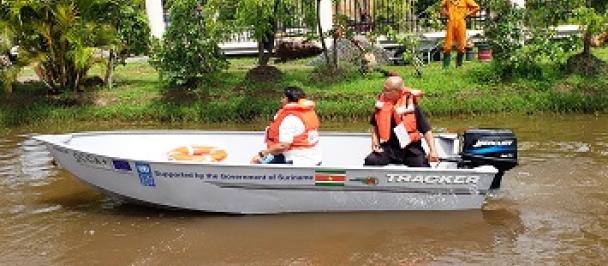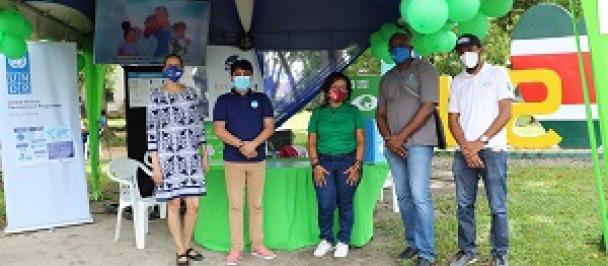Pusugrunu, Suriname. Ranger Domitsio, guided by Johan, is measuring the trunk of a tree that was cut down and left behind by people who are working for a company in the interior, to rot only for creating a new road, which will be documented and reported by the forest rangers. Protecting the forest was included in the training by the Forest Conservation project in Suriname and the Global Climate Change Alliance Plus (GCCA+), funded by the EU in collaboration with the UNDP
© GCCA+/EU 2020. Photo taken by Harvey Lisse. (February 14, 2020)
Natural threats such as earthquakes, drought, air pollution and forest fires or volcano eruptions which contribute to climate change, are linked together, and have increased their impact on human health and the environment. [i]
Air pollution is one of the greatest environmental risks to global public health and the health of the planet. In connection with this, the International Day of Clean Air for Blue Skies was declared on September 7, the theme this year is “Healthy Air, Healthy Planet". On this day, the aim is to raise awareness and facilitate actions to improve air quality.
In addition to the potential threats that climate change and air pollution can cause, we humans also contribute through our intensive lifestyles.
Humans are increasingly influencing the climate and air by burning fossil fuels (burning coal, oil or gas), farming livestock (cows or sheep produce large amounts of methane when they digest their food) and cutting down forests for mining activities. [ii]
-----[i] Source : https://www.unep.org/news-and-stories/story/five-ways-which-disasters-worsen-air-pollution
[ii] Source : https://ec.europa.eu/clima/change/causes_en
Pusugrunu, Suriname. During their training, Forest Rangers learn that forest inspection consists of inspecting standing trees in addition to ones that have been cut down. Ranger Fernando measures a tall tree while Ranger Priscilla is writing down the data.
© GCCA+/EU 2020. Photo taken by Harvey Lisse. (February 14, 2020)
Air quality is closely linked to the Earth's climate and ecosystems worldwide. As humans we produce and consume more than ever before, and we generate more greenhouse gases (from burning fossil fuels) and create more air pollutants (caused by smoke or other harmful gases , including black carbon) as a result of increased production and consumption.
Although they may seem to be two very different problems, climate change and air pollution are closely linked, so by reducing air pollution, we are protecting the climate and working toward healthier planet for people.
In the pursuit of better air quality, trees have an important role to play in cleaning the air. Trees provide O2 (oxygen) which is vital for human life as we breathe in oxygen and breathe out CO2 (carbon dioxide). How do trees clean the air? The leaves of trees have tiny pores called stomata. These stomata breathe in the CO2, breathe out the O2 and during this process also release water vapor into the air. The roots absorb the water from the environment. Both the air that plants breathe, and the water contain particulate compounds that are unhealthy for other life.
Forests of the Amazon makes up 93% of the land surface of Suriname, with a total of 14.8 million ha.[iii] Our forests are degraded by forest harvesting and threatened by deforestation due to mining activities. Prolonged drought caused by climate change could pose a serious threat for forest fires as well.
[iii] Source : https://sbbsur.com/onderzoek-en-ontwikkeling/landgebruik/
Photo1:
Pusugrunu, Suriname. A view from above. Trees have an important role to play in cleaning the air
© GCCA+/EU 2020. Photo taken by Harvey Lisse. (February 14, 2020)
In Suriname, we want to preserve and protect these forests and to encourage this, from May 2017 to December 2019, the GCCA+ project, contributed to capacity building through training provided to the Forest Rangers in the Matawai Community along the Upper Saramacca River. During this project, which was funded by the European Union (EU) in collaboration with the United Nations Development Programme (UNDP) and Forest Conservation project in Suriname, the Forest Rangers, a group of young men and women, were trained by the Amazon Conservation Team Suriname (ACT-S). With this programme ACT aims to establish a programme of conservation rangers in the Matawai Tribal Peoples’ area to improve local capacity for monitoring and data collection, taking advantage of this crucial confluence of opportunities for forests and sustainable development. With this training, the foresters were trained to ensure that the forests in the interior areas are managed sustainably.
Poor air quality also has major economic impacts in the form of higher medical costs, reduced worker productivity and damage to soil, crops, forests, lakes, and rivers. Therefore, we must work to reduce air pollution, by adopting a strategy that has a cooperative benefit for both climate and health, reducing the burden of disease attributed to air pollution and mitigating climate change in the short and long term.
We humans must ensure that clean air is available to all by taking actions. Starting with ourselves there are things that we can do such as not unnecessarily taking the car out and not burning waste in the back garden.
Pusugrunu, Suriname. A view of the forest and river as the Forest Rangers prepare to enter the field for a day of monitoring and evaluation.
© GCCA+/EU 2020. Photo taken by Harvey Lisse. (February 14, 2020)

 Locations
Locations